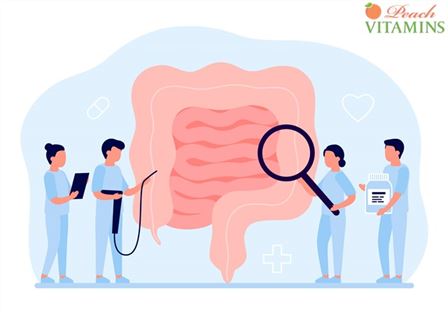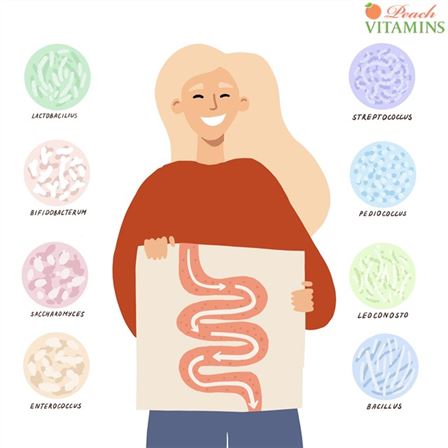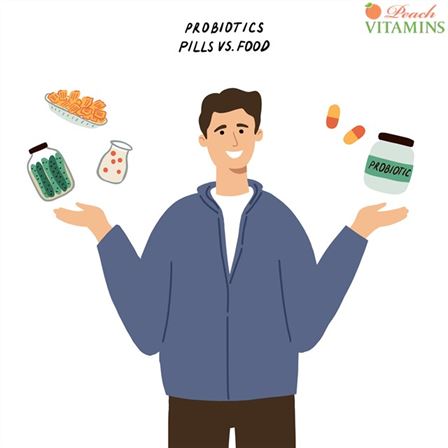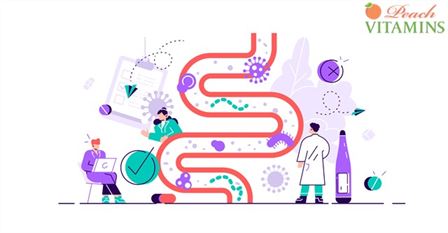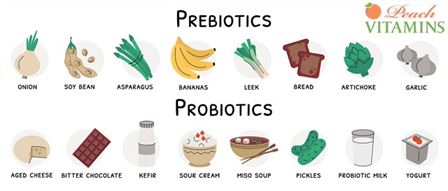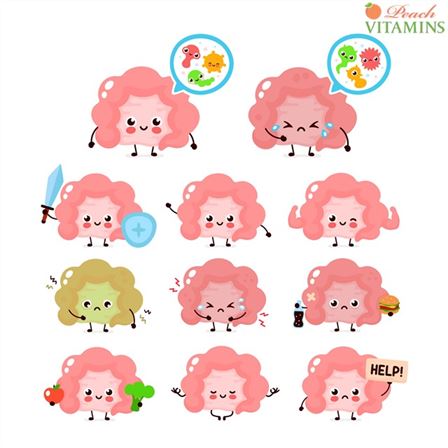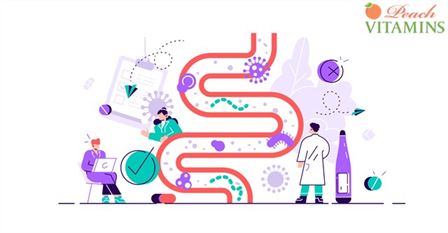The human body has a fantastic ability to heal itself. It is capable of repairing the damage done to its cells and tissues. However, sometimes the healing process takes longer than expected. In these cases, the body needs extra support to speed up the healing process.
One of the ways to achieve this is by eating foods that heal the gut. These foods that clean your gut contain nutrients that promote the growth of healthy bacteria in the digestive tract.
I am going to share with you the foods that heal the gut in 2021.
Foods That Promote Gut Health
– Probiotics: They have been used for centuries to treat diarrhea and other gastrointestinal disorders. Today, they also play essential roles in maintaining overall health.
Probiotic supplements are available over the counter or through your doctor’s prescription. You may be familiar with some of them, such as yogurt, kefir, kimchi, sauerkraut, miso soup, tempeh, pickles, olives, cheese, etc.
– Prebiotics: Also known as food for beneficial microorganisms, prebiotics are non-digestible carbohydrates found naturally in fruits, vegetables, grains, beans, nuts, seeds, dairy products, and starchy roots like potatoes.
Prebiotics feed certain types of helpful bacteria called bifidobacteria and lactobacilli. This type of bacteria plays a role in improving immune function, reducing cholesterol levels, preventing cancer, and promoting weight loss.
– Fiber: A diet rich in soluble dietary fibers promotes regular bowel movements because it increases stool bulk. Soluble fibers pass quickly through the small intestine into the large intestine, absorbing water from the colonic fluid. As a result, more liquid moves along the intestinal walls, helping soften feces so that they move out of the intestines easier.
– Fermented foods: Foods fermented using lactic acid bacteria include sourdough bread, cheeses, yogurts, buttermilk, beer, wine, cider, vinegar, soy sauce, miso, natto, sauerkrauts, etc. They produce organic acids when fermenting sugars present in their environment. Organic acids lower pH values in the stomach and increase the production of short-chain fatty acids in the colon.
Plus, they contain a wide variety of beneficial compounds such as vitamins, minerals, and enzymes.
Gut Health: How To Get Rid Of All That Gas And Bloating
The leaky gut syndrome occurs when there is increased passage of undigested proteins and fats across the lining of the intestines. Leaky gut syndrome causes symptoms ranging from mild bloating to severe abdominal pain.
The most common cause of leaky gut syndrome is gluten sensitivity. Gluten is a protein found in wheat, barley, rye, and some oats. It is present in many processed foods, including bread, pasta, beer, and baked goods.
Irritable bowel syndrome is another condition associated with the leaky gut syndrome. IBS affects approximately 10% of people worldwide. Symptoms vary depending on what part of the GI system is affected. The two primary forms of IBS are constipation-predominant IBS, characterized by infrequent defecation accompanied by hard stools, and diarrhea-predominant IBD, characterized by frequent loose stools.
Gut Microbiome: The Collection Of Microorganisms That Live In Your Gut
A healthy microbiome consists of trillions of microbes living inside our bodies. Our guts house up to 100 trillion microbial cells. Gut microbiota has been shown to influence brain development, mood regulation, metabolism, immunity, behavior, stress response, and even aging.
The gut microbiome plays a significant role in our health. It helps us digest food, produces vitamins, and regulates our immune system. But it can also cause inflammation, which is linked to many diseases, including heart disease, diabetes, obesity, depression, anxiety, and autoimmune disorders.
The gut microbiota has been shown to play a critical role in regulating metabolism by influencing hormone levels, appetite regulation, energy homeostasis, and insulin sensitivity.
In short, we all must eat healthy food, so we have a robust immune system and our bodies function correctly.
Food Digestion: How Do We Digest Our Food?
Food digestion is a process that takes place in the stomach of an animal or human. This process involves breaking down food into smaller pieces, which are then absorbed by the body.
The digestive system includes the mouth, esophagus, stomach, small intestine, large intestine, liver, gall bladder, pancreas, spleen, and rectum.
The digestive system also includes the salivary glands, which produce saliva. Saliva helps break down food before it enters the stomach.
Bad digestion happens when your stomach doesn’t work well enough to absorb nutrients from food. You may experience bad breath because you’re not producing sufficient amounts of saliva.
You might feel bloated after eating if your stomach isn’t working efficiently. Or you could be experiencing gas pains if your intestinal muscles aren’t functioning correctly.
Healthy digestion means having regularity in your bowels, no more than three times per day.
The average person has about three bowel movements each day. If you don’t have regularity, you may experience constipation, diarrhea, gas, bloating, cramps, or hemorrhoids. These symptoms can be caused by diet, stress, medications, or other factors. To help you maintain healthy digestion, try eating small meals throughout the day and drinking plenty of water.
Gut Flora And Probiotic Foods For Healthy Bowel Functioning
Food sensitivity testing is used as a diagnostic tool to identify specific foods that trigger allergic reactions. FST identifies the most common triggers of allergies, such as dairy products, gluten, eggs, nuts, soy, corn, shellfish, fish, tomatoes, citrus fruits, chocolate, coffee, alcohol, spices, and artificial sweeteners.
Undigested food particles enter the bloodstream through tiny openings called capillaries. The blood carries these particles to the lymph nodes, filtered out by white blood cells. Some of this material passes back into circulation via the veins.
This process continues until the undigested matter reaches the colon. When there’s too much-undigested food in the intestines, it causes discomfort and pain. In some cases, people with sensitive bowels develop irritable bowel syndrome.
Anti-Parasitic Foods
Certain foods contain anti-parasitic properties. Inflammatory foods like sugar, refined carbohydrates, processed meats, fried foods, fast foods, and junk foods cause parasites to multiply within the body. Parasites feed on dead tissue and waste materials produced during average cell growth. They use up valuable resources needed for healing.
Some parasites include roundworms, tapeworms, hookworms, whipworms (Trichuris trichiura), pinworms, and threadworms.
These parasites live inside our bodies without causing any harm. However, sometimes their numbers get so high that they start affecting our health.
If we eat unhealthy diets full of inflammatory foods, we increase the risk of developing parasitic infections. Eating anti-parasite foods will help us fight off harmful parasites.
Anti-Fungal Foods
Digestive issues often occur due to fungal overgrowth. This happens when yeast grows excessively in the intestine. Yeast feeds on sugars found in fruit juices, bread, cakes, pastries, candies, soft drinks, beer, wine, milk, yogurt, cheese, ice cream, and desserts. It also thrives in warm temperatures and humid conditions.
Yeast produces large quantities of carbon dioxide and ethanol while metabolizing glucose.
Bad bacteria affect digestive health because they produce toxins that damage intestinal walls. Bacteria thrive in environments rich in protein, fats, and simple carbs.
When harmful bacteria grow unchecked, they release toxic substances that affect the immune system. As a result, your body becomes less able to defend itself against bacterial infection.
Antibacterial Food Sources Include:
• Garlic – contains allicin, a compound that kills pathogenic microorganisms.
• Onions – has antibacterial activity.
• Ginger root – fights pathogens and reduces gas production.
• Turmeric – inhibits the formation of cancerous tumors.
• Cilantro – aids in detoxification.
• Lemons – prevents candidiasis.
• Limes – eliminates excess mucus from the lungs.
• Cinnamon – stimulates metabolism and improves insulin function.
• Oregano oil – destroys viruses and fungi.
• Basil leaves – promote healthy liver functioning.
When your intestinal lining becomes damaged, it allows toxins to leak into the bloodstream. As a result, the immune system attacks itself. Your body then releases antibodies against its tissues. Healthy gut bacteria keep the immune system under control.
Bacterial Overgrowth Leads to Skin Issues
Skin issues related to fungus include athlete’s foot, ringworm, jock itch, thrush, diaper rash, psoriasis, eczema, dandruff, seborrheic dermatitis, and candidiasis.
To prevent skin problems from occurring, avoid consuming sugary beverages, sweets, and baked goods. Also, limit your red meat, poultry, pork, beef, lamb, seafood, and dairy products. Instead, opt for lean cuts of protein.
Conclusion
Foods that heal the gut include various ingredients such as fruits, vegetables, nuts, seeds, beans, legumes, whole grains, dairy products, meat, fish, eggs, herbs, spices, teas, oils, and supplements. They all have different properties that contribute to improving your overall well-being. Some may be more effective for certain conditions, while others work better on other issues.
A healthy diet is the key to a healthy life. Eating foods that heal your gut can speed up the healing process. Try to incorporate some of these gut-healing foods into your diet. You will notice a positive difference in the way you feel.
I would like you to share with me your thoughts on this topic. I am very interested in learning more about how I can continue to help the community stay healthy. Thank you!
FAQs for Foods That Heal The Gut
What 3 Foods Are Bad For Your Gut?
The three foods that are bad for your gut are sugar, dairy, and gluten. Sugar causes inflammation in the body, which leads to weight gain. Dairy causes inflammation in the body and also increases the risk of cancer. Gluten causes inflammation in the body.
Gluten is a protein found in wheat, barley, rye, and oats. It has become a popular food ingredient in recent years due to its high nutritional value. However, gluten can cause inflammation in the body, leading to a variety of health problems. Some people with celiac disease cannot even eat gluten-containing foods.
What Is The Fastest Way To Cure Inflamed Gut?
The fastest way to cure inflamed gut is by eating a diet rich in fiber and probiotics. This includes fruits, vegetables, whole grains, nuts, seeds, beans, legumes, and dairy products. These foods contain prebiotic fibers that feed beneficial bacteria in your digestive tract. Probiotics help maintain healthy levels of good bacteria in your gut. They also help prevent harmful bacteria from growing.
I recommend starting with a high-fiber diet. If you don’t eat enough fiber, it will take longer to feel results. Fiber helps keep your digestion moving along smoothly, which makes it easier to absorb nutrients. It also allows you to feel fuller, so you eat less.
Are Eggs Bad For Inflammation?
Eggs are one of the most nutritious foods available. They contain high levels of protein, vitamins, minerals, and antioxidants. They also provide a great source of energy. However, eggs are also known to cause inflammation. This is due to the presence of cholesterol in the yolk. Cholesterol is found naturally in the body, but when too much accumulates in the blood, it can cause inflammation. Some people with high cholesterol may even experience symptoms of inflammation.
Furthermore, eating raw egg whites has been shown to increase intestinal permeability. Leaky gut occurs when there’s damage or disruption to the tight junctions between cells lining your intestines. The result? Antibodies from food proteins leak into your bloodstream, causing systemic inflammation. So if you want to avoid this problem, eat only cooked egg white products such as scrambled, poached, hard-boiled, etc.
Benefits of the Gaps Diet for Autism
Source: (autismparentingmagazine.com)
40 Ways to Stay Healthy After 40, Say Experts
Source: (eatthis.com)
[wps_products product_id=”6622364041251″ html_template=”product.php”]


